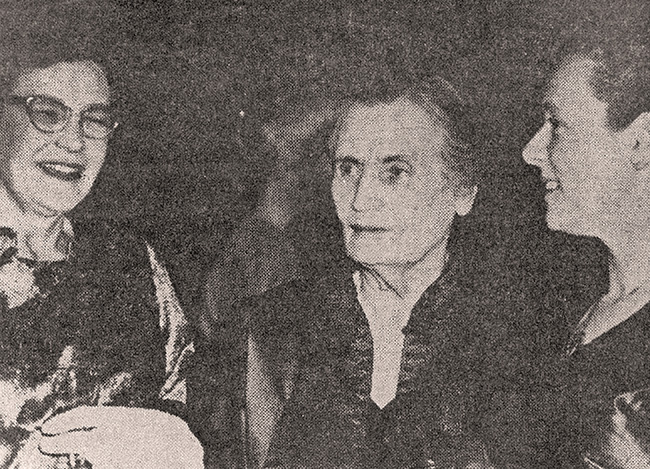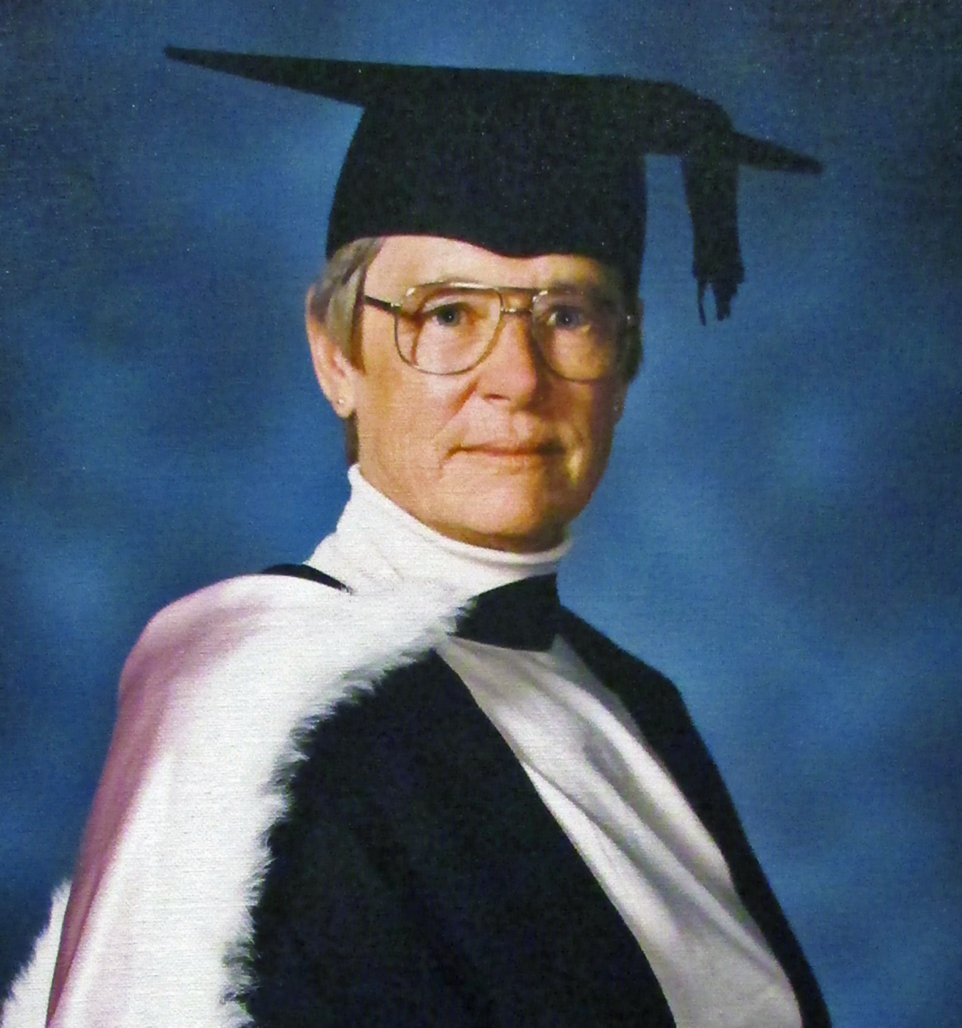Tremendous advances in available technologies have taken the practice of physiotherapy to an entirely new level since Billie McLeod first met with her school's vocational guidance counselor.
The recent arrival of a new Equitest® machine in the School's Balance Clinic will allow complex individual patient information to be acquired, analysed and interrogated in 'real time'.
Reliable clinical data was somewhat harder to acquire in the 1940's when young Dunedin woman Billie McLeod first took a good look at a possible career in physiotherapy.
It was the mention of technical terms such as 'electromyography' and 'dynamometer' which helped pique an interest in the study of physiotherapy and led Billie to a very rewarding career.
Miss Gotts as mentor
Billie tells us that she was also very much influenced in her early years by the School's Vice Principal, Englishwoman Enid Gotts.
Miss Gotts, described by one of her students as 'aloof but tremendously fair' had arrived from Britain in the early 1930s and was head of the School until late 1964. Something of a character, she mainly taught electrotherapy and even sat exams to become an electrician so she could fix the machines used intensively in practice at the time.
These practical skills impressed Miss McLeod.

Three Principals of the School.
From left: Mrs. Enid M. Anderson (nee Gotts), 1946-1964, Miss M. Louise Roberts, 1925-1946
and Miss Billie D. McLeod, 1965-1990
Off to Kings College
Dunedin-born and educated Billie was able to study at what was then the New Zealand School of Physiotherapy with the help of a Health Department bursary. She qualified in 1951 and went on to work at Cook Hospital in Gisborne and as charge physiotherapist at Southland Hospital, before returning to the School as a supervising physiotherapist in 1958, where she soon earned respect as a highly capable practitioner.
Working alongside students in her hometown had sparked an interest in teaching and at the end of 1959, Billie headed to King's College in London returning as a qualified teacher in 1962 having gained invaluable experience in some of the latest techniques in use at that time.
She was appointed Principal and Head of School in 1965.
Steady efforts and rewards
Being intensely aware of Dunedin's fine tradition of physiotherapy training and its high international standing, Billie declared in her first annual report that she intended to continue very much along the lines of her two highly regarded predecessors Miss Gotts and Miss Roberts.
 She eventually oversaw the move from hospital to education institution-based training that placed the School under the Otago Polytechnic umbrella in 1976. This was part of a wider move to shift the education of health staff away from hospitals, a move that also saw nursing training taken into the polytechnic system.
She eventually oversaw the move from hospital to education institution-based training that placed the School under the Otago Polytechnic umbrella in 1976. This was part of a wider move to shift the education of health staff away from hospitals, a move that also saw nursing training taken into the polytechnic system.
She recalls this as a difficult time which many considered to be a reluctant and 'forced move'. Questions soon arose over the perceived quality of future physiotherapy education as well as pay equity. A majority of then Health Board management considered physio to be 'women's work'.
Billie McLeod NZRP, B.AOn a positive note however, the imminent transition at least meant that the chronic staffing problems being experienced at the time could finally be addressed.
Billie McLeod's steady efforts over many years played a pivotal role in defining the profession of physiotherapy in New Zealand. Now in retirement, Billie leads the ukelele orchestra at her village in the same forthright, kind and pragmatic manner with which she guided the study of Physiotherapy in Otago through so many critical phases.
We at the School owe her a very real debt of gratitude.
Publications
Lawrence, R. (2005). Branding terroir in the ′New World′: Modes of representation in the wine industry. In P. Sorrell, C. Ozcan, E. Kocabiyik & Z. T. Ultav (Eds.), Proceedings of the IST Product and Service Design Symposium and Exhibition on Agricultural Industries. Izmir, Turkey: Izmir University of Economics. [Full Paper]
